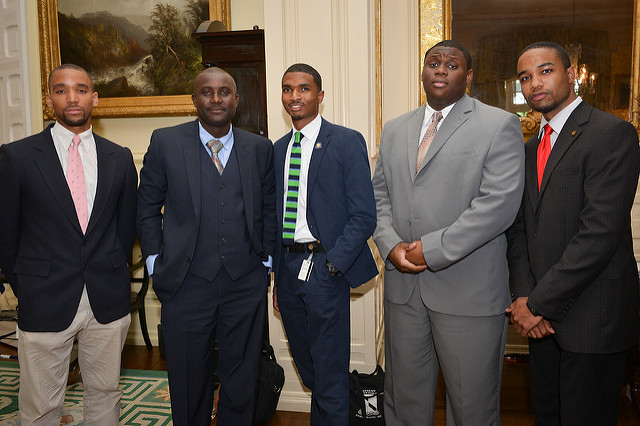5 Ways Gifted Students Learn Differently

What distinguishes gifted children from other children? This question has been under debate for some time. However, as educators, understanding how gifted students learn in comparison to their peers is necessary for the success of their learning experience and your ability to connect with them through teaching.
During most of the 20th century, giftedness was determined by testing a student’s IQ. As special education programs became more advanced, tests for symptoms of particular disabilities developed, and alternative methods of identifying giftedness emerged. Some educational psychologists believe that giftedness differs markedly from talent; they define giftedness as a high aptitude for learning in a particular area and define talent as a superior level of mastery in a field or skill.
Others claim that there are two types of giftedness: students who exhibit a high level of natural academic ability, and those who exhibit a high degree of motivation and creativity. This definition of giftedness gives students more responsibility to prove that they are truly interested in developing their ability and will take advantage of the opportunities offered them if they are selected for a gifted program. Because of the financial limitations in most public school systems, gifted programs are often highly competitive.
The federal government defines gifted and talented students as those who perform to a high degree in certain areas, including mathematics, leadership, writing, or creative endeavors. Gifted students also must demonstrate the need for special programs and services that will help them pursue their interest in their area or areas of giftedness. When selecting students to receive special services for giftedness, the criteria for eligibility usually include test scores, teacher recommendations, how quickly the student learns, and other attributes that are typical of gifted students. Even the National Association for Gifted Children (NAGC) has a difficult time defining giftedness. The NAGC suggests that gifted individuals exhibit or have the potential to exhibit exceptional performance in one and often more than one area of giftedness.
There are five ways in which gifted students tend to learn differently from their peers:
1. They learn new material much more quickly.
2. They have a better ability to remember what they have learned, which reduces or eliminates the need for review.
3. They have ability for abstract or complex thinking that their peers do not have.
4. They become focused on specific topics and are very passionate about them to the exclusion of other topics and subjects.
5. They can take in many stimuli at once, knowing what is going on around them while concentrating on a specific task.
Using these characteristics as a guideline, approximately 6%, or 3 million, students in the United States may be classified as gifted. Although there is little argument that gifted and talented students must be provided with challenges that meet their academic needs, no federal regulations specifically mandate special services for G and T learners.
It is a challenge for teachers to generate ways to stimulate gifted students and provide them with the resources and instruction that will allow them to test their abilities and grow intellectually. Teachers also do not have the support of additional classroom help to work with gifted students. Many teachers use enrichment activities such as independent projects, small-group investigation, and academic competitions to address the needs of gifted students in the regular classroom, and teachers may design special areas of the classroom to offer advanced learning opportunities.
Gifted students might be pulled out of their regular class for part of the day to learn at a more advanced level, similar to the way students with learning disabilities are pulled out to learn at a level that is appropriate for them. Services provided for gifted students in secondary schools usually include enrichment or accelerated learning opportunities. The two approaches differ. Broadened learning experiences occur within the general education classroom, with the curriculum adapted to accommodate a wider range of interest and learning styles. The accelerated approach allows students to take more demanding courses beyond the general classroom.
So how many gifted students are sitting in our classroom today? Are we teaching them properly?






